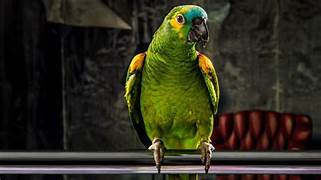Can a Penguin Be a Pet?
Penguins are fascinating creatures that have captured the hearts of people worldwide. With their adorable waddling and charming appearance, it's no wonder some might consider keeping one as a pet. However, before you rush into making a decision, it's crucial to understand the complexities involved in penguin ownership and whether it's truly feasible or ethical.

Habitat and Diet
Penguins are native to cold, coastal regions of the Southern Hemisphere. They possess unique adaptations for survival in these harsh environments, such as thick layers of insulating fat and water-resistant feathers. Their diet consists primarily of fish, squid, and krill, which they catch by diving and swimming in icy waters.
Replicating their natural habitat in a domestic setting is virtually impossible. Even if you were able to provide them with a suitable enclosure, it would be challenging to mimic the complex social interactions and behaviors they engage in with their colonies.
Legal and Ethical Considerations
In many countries, it's illegal to keep penguins as pets. They are protected species due to their vulnerability to habitat loss, overfishing, and climate change. The trade and ownership of penguins are strictly regulated to prevent further decline in their populations.
Moreover, keeping a wild animal as a pet raises ethical concerns. Penguins are not domesticated animals and do not naturally thrive in human environments. They have specific needs and behaviors that cannot be easily accommodated in a domestic setting, leading to potential health problems and distress for the animal.
Welfare and Health
Penguins are highly social animals that rely on their colonies for survival. Isolating them from their natural social structure can lead to loneliness, depression, and behavioral problems. Additionally, the stress of living in an environment not suited to their needs can compromise their immune system, making them more susceptible to diseases.
Providing penguins with proper veterinary care is another challenge. Their unique physiology and specialized dietary requirements necessitate access to specialized veterinarians and facilities, which may not be readily available.
Conclusion
Based on the aforementioned factors, it becomes apparent that penguins are not suitable as pets. Keeping them in captivity poses significant challenges to their welfare, ethical concerns, and legal implications. The best way to appreciate and protect these amazing creatures is by admiring them in their natural habitats or through reputable wildlife conservation organizations.
Declaration: All article resources on this website, unless otherwise specified or labeled, are collected from online resources. If the content on this website infringes on the legitimate rights and interests of the original author, you can contact this website to delete it.






